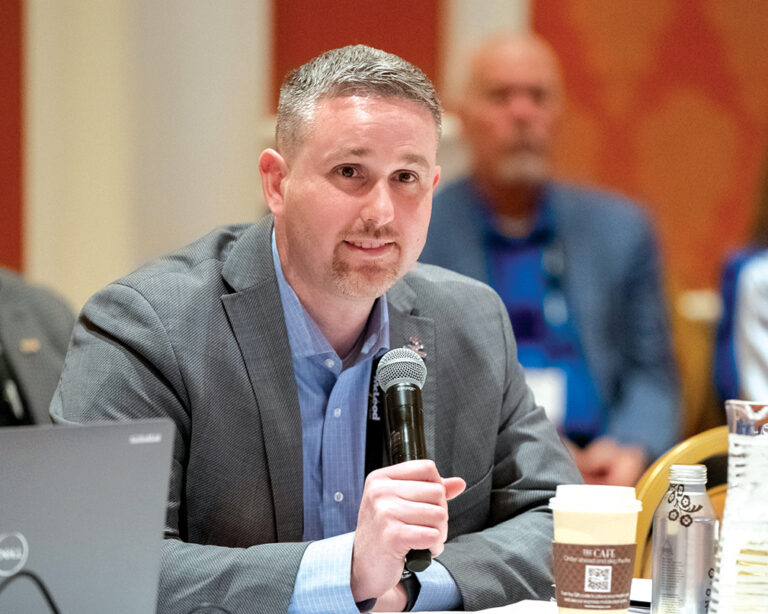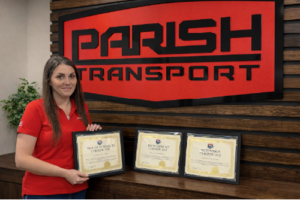Independent contractors (ICs) provide capacity to carriers, with less capital investment needed. Managing them, however, comes with an added degree of operational complexity. In the current political climate, the traditional IC model is being threatened, and the carrier-IC relationship could soon change into something entirely different.
The Truckload Carriers Association’s (TCA) Independent Contractor Practices Policy Committee (ICPPC) helps its carrier members navigate the complex issues of employment classification, workers compensation, taxes, carrier leasing issues, and more. For the past year and a half, Warren Transport’s Vice President and General Manager of the Van Division Lance Votroubek has chaired the committee. The Waterloo, Iowa-based for-hire carrier is 100% owner-operator.
“The issues that the TCA helps advocate for on our behalf are very critical when it comes to independent contractors,” shared Votroubek. “I see this particular committee and role as imperative and directly related to the success not only my company, but of the model of trucking that so many people have in this country.”
With about 400 trucks in the division he heads at Warren, Votroubek appreciates what the committee brings to the industry.
“Our ability to have leaders from both large and small carriers nationwide be very active and advocating on our own group has allowed us to have a large voice when speaking with Congress and with our own states,” he explained. “When a company like Warren can work with a company like Landstar or Diamond Transportation System or Double Diamond, companies large and small that have the same focus, the impact is much greater.”
A major challenge for the committee, and for carriers who utilize ICs in their fleets, is the passage of California’s AB5 and the federal version known as the PRO Act. Both call for the “ABC Test” to determine whether a worker is an employee or an IC. Both would classify nearly all ICs serving the trucking business as direct/in-house employees, radically changing the current model and greatly increasing the carriers’ legal and tax liabilities. The legislation, if enacted, would also harm ICs.
“Independent contractors don’t want to change the model,” said Votroubek. “They are hardworking people who have chosen to run a business, and if you ask them, they want the freedom. They want the ability to choose their work and how and when to do it. And by changing the model, you’re taking all of that away from them against their will.”
The committee’s work to combat AB5 and the PRO Act benefits both carrier and IC.
“The advocacy that TCA is doing is shaped by input from carriers through the independent contractor committee,” he explained. “The fact that those pieces are not implemented fully says that the advocacy that we’re doing is having an impact and at least delaying it.” Votroubek continued, “We have to make sure that the model stays fair for everybody, such that rules are not put into place by people who are unfamiliar with the trucking model and why it works and works the correct way.”
TCA’s Senior Vice President of Safety and Government Affairs David Heller handles much of the advocacy work on Capitol Hill.
“Dave Heller is an excellent spokesperson and mouthpiece for our organization and our industry, but he needs to know what we want,” noted Votroubek.
Committee members discuss the impact of issues like the PRO Act, the desired outcome and the appropriate narrative.
“That provides TCA and Heller with what he needs to go out and advocate, mostly at the national level, but it also allows us as individual carriers to understand our focus so we can bring a consistent message to our home state governments and associations,” added Votroubek.
The upcoming November elections may play a huge role in whether the PRO Act becomes law.
“We know one side of the aisle prefers to have the PRO Act as a data path and we know that the other side is much more friendly towards our position,” noted Votroubek.
Current polling suggests that Republicans — the “friendly” side on this issue — will win seats in both chambers, possibly gaining a majority in both. Even if this happens, however, Votroubek has no plans to stop fighting.
“We should never pause on our on our efforts to permanently squash things like AB5 and the PRO Act,” he said. “Just when you think that something has been decisively beaten down, it gets revived in some other way, and you end up fighting the same fight for years.”
The ICPPC can take up any issue that is impacting carriers and their relationship with ICs. Currently, higher fuel prices, coupled with declining freight rates and rising interest rates, are putting pressure on everyone, especially those owner operators who registered as new carriers in record numbers during the past year. As market conditions worsen, many of those may seek to lease on as ICs.
“That independent contractor who is bringing their own truck to a carrier certainly wants a carrier that has the freight and the rates and the network to support their increased expenses,” said Votroubek. “There’s no way that rates can go back to what they were two years ago and just lifted, higher interest rates, insurance, parts availability and truck availability make the partnership between an independent contractor and the carrier that much more important.”
While trucking conditions and regulations are bound to change, one thing that won’t change is the determination of the committee to represent the collective will of its membership. It’s the carriers who participate in the ICPPC that provide the knowledge needed to be effective, according to Votroubek, who would like to see even greater carrier participation.
“Our relationship with our carriers is so important because we want the input of every individual carrier, what is happening, and what’s impacting them. We want to hear your ideas, what are the problems that we can address better,” he concluded.
To join the committee, visit truckload.org/committee-program-leadership.
Cliff Abbott is an experienced commercial vehicle driver and owner-operator who still holds a CDL in his home state of Alabama. In nearly 40 years in trucking, he’s been an instructor and trainer and has managed safety and recruiting operations for several carriers. Having never lost his love of the road, Cliff has written a book and hundreds of songs and has been writing for The Trucker for more than a decade.











